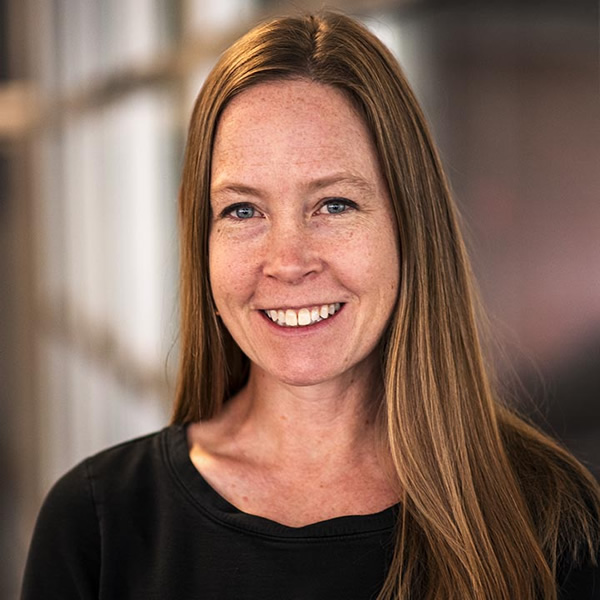 Jessica Haberer MD, MS believes that strong global health research starts with equitable partnerships.
Jessica Haberer MD, MS believes that strong global health research starts with equitable partnerships.
Dr. Haberer is the Director of Research at the Mass General’s Center for Global Health (CGH). She is a leader in HIV/AIDS research—specifically around adherence to antiretrovirals and pre-exposure prophylaxis.
Her global health work began in the early 2000’s when she found herself working for the Clinton Foundation in China. There she worked with the Ministry of Health and helped start a pediatrics program focused on HIV medication adherence.
“I got asked by some people, ‘Why are you in China? Why aren’t you helping your own people?’” she said about questions of this work.
Though proud of what she accomplished, she understood these questions and had asked herself similar ones about working globally: “Why am I working there as opposed to here?”
To answer this question, Dr. Haberer had to be honest about her own position in global health. That meant she had to account for her skills—as a grant writer, as a researcher, and as an internal medicine physician—and her privileges—as a white woman physician at Harvard Medical School. Ignoring one’s own privileges makes researchers more likely to continue histories of harm and conduct research without care. Dr. Haberer believes acknowledging privilege is an important first step in global health research.
In order to best use her skills, Dr. Haberer committed to consciously leveraging her privilege and resources to address inequities in global health. She identified the incongruence between research questions and community needs as one consequence of unchecked privilege.
“A lot of questions are asked by the people with the money,” Dr. Haberer said. “Those questions are not necessarily relevant to the people living their lives and dealing with the problem.”
To respond to this issue, she currently works to establish research partnerships based on mutual respect, partnerships that listen to the community needs to co-create agendas.
One of Dr. Haberer’s first projects was conducted at Mbarara University of Science and Technology (MUST), in 2008. She found a shared concern about child adherence to ART between herself and local physicians in Mbarara. Together, they created programs to better understand patient experiences in ways that met the local community’s needs.
Over the past decade, she has continued to work with MUST and watched the center grow into a research hub. And her role in MUST—while she still conducts research—shifted to supporting the researchers there. She now serves as a mentor, assists individuals with grant writing, advises researchers based on funding priorities, and collaborates on research methods and design.
This evolved role at MUST stemmed from Dr. Haberer’s recognition that many global health decision-makers don’t take the time to listen to local leaders, often overlooking their ideas and experiences.
Nelly Mugo, MBCHB, MMED, MPH, Associate Research Professor in the Department of Global Health, University of Washington and the Center for Clinical Research, Kenya Medical Research Institute was one of these local leaders. Described as a powerhouse and advocate for the communities she works in, Dr. Mugo once seldom had time to lead her own projects due to clinical demands and assistance needed on other research endeavors. Combining her own experiences and ideas with Dr. Haberer’s mentorship, Dr. Mugo now leads a clinical trial unit in Thika, Kenya.
Similarly, Andrew Mujugira, MBChB, MSc, MPH, PhD, MAC, also benefited from Dr. Haberer’s mentorship approach. They first met in 2008, while he was working to support a large study in Uganda and Kenya. Eight years later, after completing PhD work and looking to develop research programs regarding PrEP adherence in his native Uganda, Dr Mujugira reached out to Dr. Haberer for mentorship.
“We worked very closely,” Dr. Mujugira said. “I sent her my [grant] draft and she helped me to edit that and be a better researcher.”
In that period, Dr. Mujugira was awarded the Fogarty Emerging Global Leader Award that gave him the time, security, and freedom to conduct research for five years. With that newfound sense of freedom, he devoted himself to creating equitable partnerships and mentoring aspiring researchers.
“My desire here is that people get funding,” he said. “Because once you get that funding you have the freedom to do what you want. If you work for other people you implement their ideas, but you don’t really grow until you’re implementing your own ideas and answering your own questions.”
Throughout her career, Dr. Haberer has focused on leveraging resources to provide opportunities for her collaborators to ask and answer their own research questions and build their career paths. This vision aligns closely with the MGH Center for Global Health’s approach to research in global health – to create, inspire and accelerate collaborative, equitable research partnerships, with bi-directional learning and mentorship across the globe.
“I bring my skills and then I identify the people I’m working with,” Dr. Haberer said. “We ask, ‘What are my goals, and your goals? What are our common goals? What skills do we have?’ And then we pull it all together and we try to do something good.”


